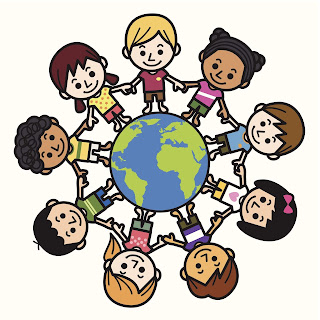Black Feminism & the Moment for Black Lives
I learned many things from watching this panel about black feminism that I wasn't aware of before. I have heard of feminism, but never considered that there was a specific approach to feminism for different races. I looked it up, and black feminism is talking about feminist issues, but specifically those that deal with African American and black women. Charlene, Barbara, and Reina are the hosts of the podcast. They discussed such important things that are currently taking place in our society. The panel reflected on the ways that Black Feminism shapes and informs the current struggles and successes we all see on an everyday basis. I appreciated that in the beginning of the podcast, a women introduced the three of them not by just saying their name, but also giving some background knowledge about them. I thought this was helpful, because for people like myself who didn't know who they were, it was a very good opening to see who they are, what organizations they founded or were a part of, and their overall accomplishments. It helped me to understand who they were and how they were experts in the field, and was helpful in understanding the rest of the episode.
I learned that Barbara co-founded the Combahee River Collective in 1974. She founded the Kitchen Table which is the Women of Color Press. In addition she was a publisher of many works by feminists of color.
Reina was a member director who lifted the voices and power of trans and gender non-conforming people. She was awarded the George Soros Justice Advocacy Fellowship to work with the LGBT people navigating criminalization. In addition she co-wrote and co-directed the new film "Happy Birthday Marsha." I was very interested to see what this movie was about so I decided to do additional research. I found that it was a fictional film that imagines gay and transgender rights. It also highlights the life of transgender artist and activist Marsha P. Johnson.
Charlene is feminist community organizer and writer with many years of experience in racial justice, and feminist youth leadership development. She serves as the national director of the Black Youth Project dedicated to creating justice and freedom for all black people.
These activists accomplished things that are very powerful and inspiring. This panel was very eye opening to me and it allowed me to see that challenges and struggles still occur when talking about Black Feminism. The women asked the three of them this, "we are disposable in society until we are being appropriated or exploited. Everyone wants a booty, everyone wants big lips, everyone wants fashion sense. These things don't get to the reality which is we are no longer picking cotton but we are still subjected, exploited, underpaid, and undervalued in the workplace." This was powerful to me because why are things like this still happening in our world? Reina expressed that when she thinks about this question Marsha P. Johnson pops up into her head who was a black trans women and one of the first people to resist the police at the Stonewall riots in 1969. The following year people organized the first Christopher street liberation day. It started at the women's health detention center because it wanted to connect the mass incarcerations of black people. I learned that when the Christopher street liberation occurred people were chanting "free our sisters, free ourselves." They chanted this because they wanted to connect anti-black racism, police violence, state violence and the policing of queer and trans people in our community. I think this is very important to know and understand because unjust behavior is still occurring today. Instead everyone should be making a change together to make our world a better and safe place. Every single person should be able to express who they are without any comments. Be who who you are and embrace it as fully as you can because who cares what everyone else thinks.
I loved hearing about what their definition of self care was because everyone has their own way of thinking about and doing self care. Self care means different things to different people. Some may take time away to rest from activities, and some may choose activities to engage in that they enjoy and that take their mind off of things. Listening to what the women had to say about self care helped me to reflect on my own forms of self care, and if they're working for me. These activists made some great points and I'm so glad that I took the time to watch it and write my last event blog post on it. These women are not only inspiring but they are also the voice for many people in our society who are afraid to speak about these current issues taking place. I took away so much from this panel and I am excited that I was able to learn this much about a certain topic. I hope that in the future more change will take place so that our world can become a better place again.







Wow--thank you for this beautiful synopsis and reflection!
ReplyDelete